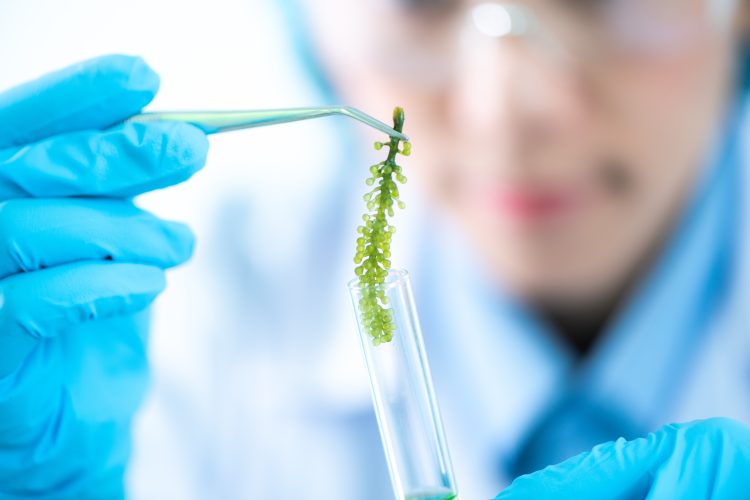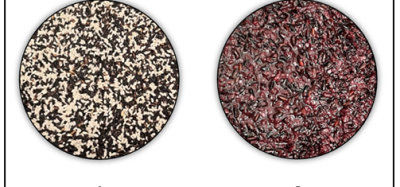Could microalgae be the future sustainable superfood?
- Like
- Digg
- Del
- Tumblr
- VKontakte
- Buffer
- Love This
- Odnoklassniki
- Meneame
- Blogger
- Amazon
- Yahoo Mail
- Gmail
- AOL
- Newsvine
- HackerNews
- Evernote
- MySpace
- Mail.ru
- Viadeo
- Line
- Comments
- Yummly
- SMS
- Viber
- Telegram
- Subscribe
- Skype
- Facebook Messenger
- Kakao
- LiveJournal
- Yammer
- Edgar
- Fintel
- Mix
- Instapaper
- Copy Link
Posted: 19 January 2023 | Grace Galler | No comments yet
A study has claimed that microalgae could be the future sustainable superfood, stating that the aquatic plant has various environmental and nutritional advantages.


Researchers at the University of California, San Diego (UCSD) have claimed that microalgae “could be the future sustainable superfood in a rapidly changing world”.
Stating that it has environmental and nutritional advantages, the researchers say that microalgae is high in protein and has a high nutrition content.
The study, published in Frontiers in Nutrition, highlights current technologies used for commercially developing and growing microalgae, as well as the scientific and economic challenges to scaling production.
Although microalgae has previously been a studied in relation to biofuel (thanks to its high lipid content), algae are now attracting the interest of researchers because of the potential for it to be aa efficient food source.
“Many of us have known the potential of algae for food for years and have been working on it as a food source, but now, with climate change, deforestation, and a population of eight billion people, most everyone realizes that the world simply has to become more efficient in protein production,” said Co-Author Dr Stephen Mayfield, a Professor of Biology at UCSD and Director of the California Center for Algae Biotechnology.
Citing a 2014 study, Mayfield explained that his team found that algae can produce 167 times more useful biomass than corn annually while using the same amount of land. However, other models predict that existing algae strains could potentially replace 25 percent of European protein consumption and 50 percent of the total vegetable oil consumption when grown on available land that is not currently used for traditional crops.
“The biggest advantage is the protein production per acre,” Mayfield noted. “Algae simply dwarf the current gold standard of soybean by at least 10 times, maybe 20 times, more production per acre.”
In addition, the researchers have claimed that some algal species can be grown in brackish or salty water and (in at least one case) wastewater from a dairy operation, allowing freshwater to be reserved for other needs.
The researchers have also noted that, nutritionally, many algal species are rich in vitamins, minerals and especially macronutrients essential to the human diet, such as amino acids and omega-3 fatty acids.
However, there are still challenges when it comes to finding or developing algal strains that “check all of the boxes”. These challenges include high biomass yields, high protein content, full nutrition profile, and the most efficient growing conditions in terms of land use, water requirements, and nutrient inputs.
Considering whether people would be open to eating algae, the researchers said that “some tweaking of colour, taste, and decreasing that characteristic fishy smell may be needed to convert some consumers”.
Predicting that the biggest challenge for commercial development won’t necessarily be scientific, technical, or aesthetic, Mayfield said that it will be “the ability to scale production globally.
“You just can’t know all the challenges of going to world scale, until you do but the world has done this [with] smartphones, computers, photovoltaic panels, and electric cars. All of these had challenges, and we overcame them to take these ‘new’ technologies to world scale, so we know we can do it with algae.”
Mayfield said the need for alternative food systems has never been more urgent, as the human population swells, pushing resources and systems “to the breaking point”.
“The only way to avoid a really bleak future is to start transitioning now to a much more sustainable future, and algae as food is one of those transitions that we need to make,” concluded Mayfield.
Related topics
Health & Nutrition, Quality analysis & quality control (QA/QC), Research & development, Supply chain, Sustainability, World Food
Related organisations
California Center for Algae Biotechnology, Frontiers, San Diego (UCSD), University of California









